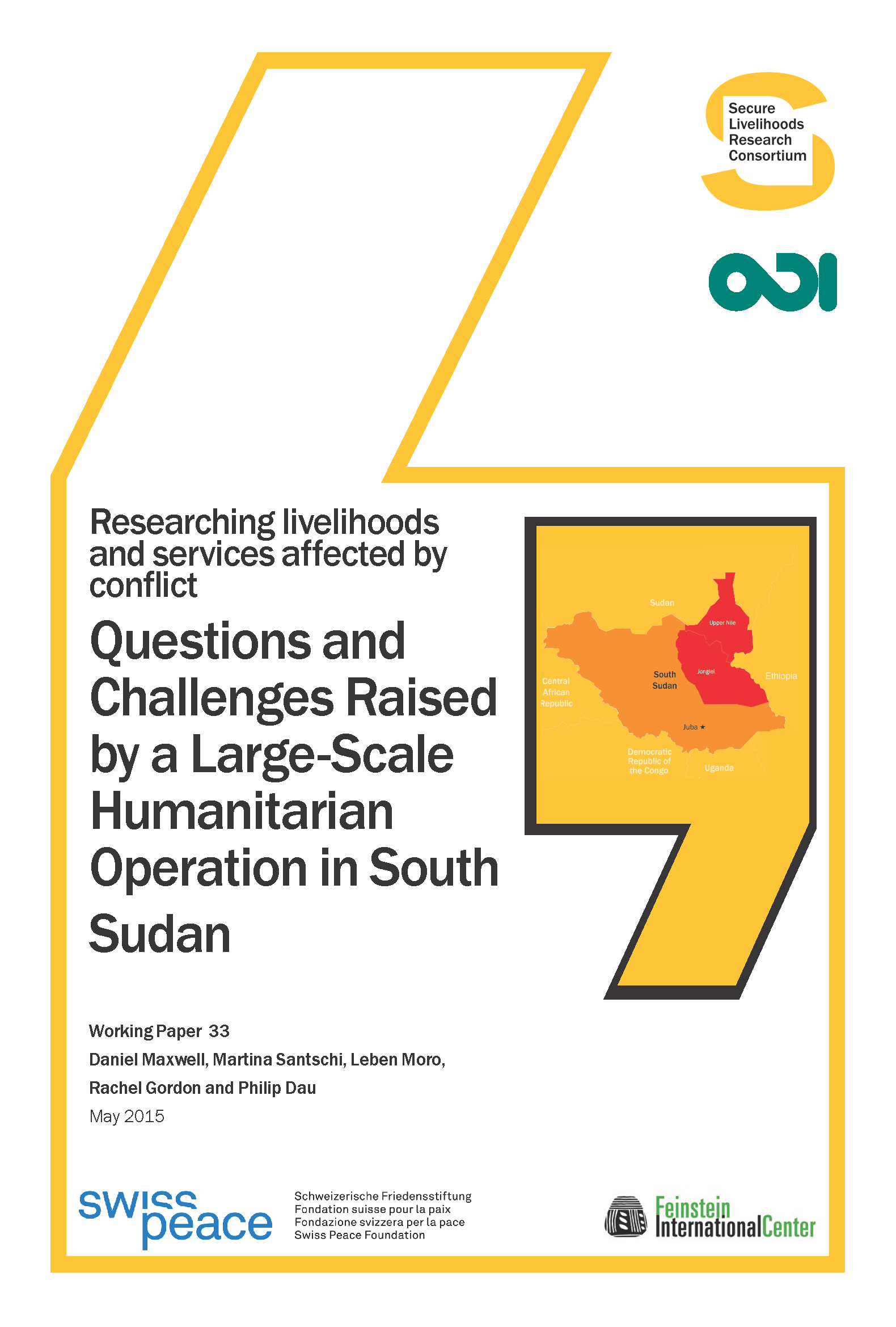This working paper analyzes the relationships between international humanitarian aid agencies and the government structures they engage with in South Sudan. The researchers review the legacy of Operation Lifeline Sudan (OLS) and explore its effects on the Government of the Republic of South Sudan (GRSS), the Sudan People’s Liberation Movement (SPLM), local chiefs, and civilians, in terms of relationship structures and expectations related to humanitarian aid. In particular, the paper examines how, in a conflict context, humanitarian actors may replace state functions, affect development, legitimize non-state actors, and potentially prolong conflict.
The authors found:
- In a humanitarian crisis, impartial treatment of parties may be seen by state government as betrayal, or even as military support of the opposition
- Many chiefs and civilians see GRSS as unable to meet civilian needs during the conflict, and hold high expectations for humanitarian aid, with a tone of entitlement and rights
- Humanitarian actors can contribute positively to relations between internally displaced people (IDPs) and their host communities through specific decisions, such as not distinguishing between IDPs and hosts in the distribution of aid
The authors offer commentary on several longstanding questions about the role of humanitarian aid in conflicts, and additionally offer recommendations for aid agencies such as making greater efforts at transparency and coordination with state governments when possible.
This paper is based on research conducted in Juba, Minghaman, and Ganyiel in October 2014 for the Secure Livelihoods Research Consortium (SLRC), a six-year, eight-country research study, led by the Overseas Development Institute (ODI) in London. SLRC investigates livelihoods, access to basic services, and social protection in fragile and conflict-affected situations. The research is funded by the UK Department for International Development (DfID), Irish Aid, and the European Community (EC). The Feinstein International Center leads SLRC research in South Sudan and Uganda in addition to its participation in the Sierra Leone research.







